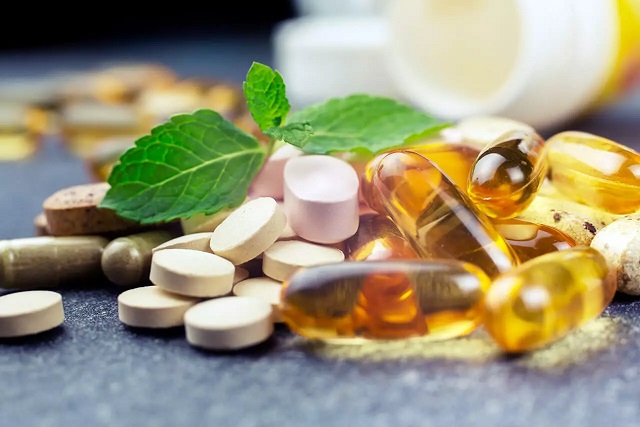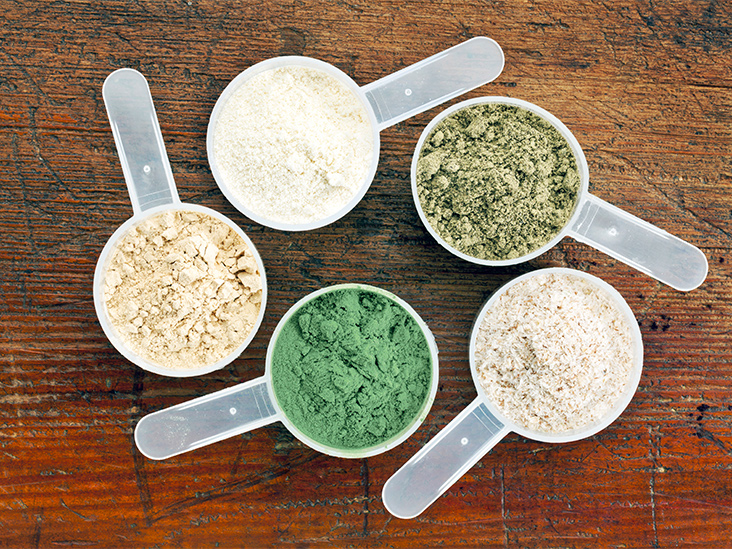Supplements play an important role in the Health and Fitness industry. Supplements are compulsory for bodybuilding and healthier life. They enhance our health and fitness that’s why we should take properly balanced diet with proper supplements.
Some of the best supplements, you should take:
- Multivitamins
- Vitamin D
- Protein Powder
- Fish Oil
- Greens Supplements
1. Multivitamins: Benefits and how much we should take?

The main purpose of taking multivitamins is to fill the nutritional gap. It provides the wide variety of healthful nutrients and chemicals which is naturally found in food. Here are the benefits of multivitamins…..
- Increasing energy level
- Stronger Bones
- Healthy skin
- Healthy Heart
- Improve stamina level
- Improve Moods
- Reduces stress and anxiety
- Improved short-term memory
- Maintained muscle strength
How much –
1/2 dose with breakfast and another 1/2 dose with another meal later in the day. It is even better, to split a full day’s dose across three or four servings. If you take a high-potency multivitamin on an empty stomach, be forewarned that it will not only reduce the absorption of nutrients, but there’s also possibility that you’ll begin to feel nauseated within 30 minutes of taking the supplement.
2. Vitamin D: Benefits and how much we should take?

Vitamin D is known as the sunshine vitamin. It is the most important and powerful nutrient for supporting the immune system.
Some of the food sources are:
- Salmon
- Mackerel
- Tuna
- Sardines
- Vitamin D is fortified like milk, orange juice, and cereals.
How much-
One should take 2,000-4,000 IUs with breakfast and again with another meal later in the day. Is a fat-soluble vitamin, so taking it on its own isn’t likely to be as effective? And if you take a vitamin D supplement, then it would be better to walk in sunshine too.
3. Protein Powder: Benefits and how much we should take?

Protein Powder is the main source of bodybuilding and shaping. It is compulsory for all the individuals who spend lot of time for workouts.
Basically protein powders help in body repairs and grow muscle. It also improves insulin sensitivity and blood glucose control, supports healthy blood pressure and inflammatory response, reduces age- or inactivity-induced losses in muscle and strength, and is critical for a robust immune system. Also, protein increases calories burn and reduces hunger more than either carbohydrates or fat.
If you get your protein then must include these:
Dairy products, egg, chicken or other animal sources, vegetables (soy, rice, pumpkin, hemp, etc.), fish, algae-like spirulina— the list goes on and on.
However, I believe that the WHEY protein is one of the best supplements for protein. Here below is the guidance for taking Whey protein in our daily workout life:
Whey Protein (How much)

Consuming at least 25 grams of Whey per serving(at least once) but possibly multiple times per day. It helps reduce appetite and lower blood glucose response to a meal, drink a WHEY Shake at least 30 minutes before eating a meal. It is around exercise, there’s no wrong or conclusively right time to consume whey: pre-, intra-, or post-workout. Its potential benefit depends upon other factors. Consuming whey around the time of your workouts can amplify the positive effects of your training.
4. Fish Oil: Benefits and how much we should take?

Omega 3 with fish oil is the name of the capsule that you should take for enhancing skin and muscle growth. Benefits of taking Omega 3 Fish Oil Supplements:
- May support heart health
- May help treat certain mental health conditions
- May support eye health
- May reduce inflammation
- May support healthy skin
- May support pregnancy and early life
- May reduce liver fat
- May improve symptoms of depression
- May improve attention and hyperactivity in children
- May help prevent symptoms of mental decline
- May improve asthma symptoms and allergy risk
- May improve bone health May improve bone health.
How much
World Health Organization recommends a daily intake of 1.1–1.6 grams (1,100–1,600 mg) of omega-3 fatty acids. It may be necessary to increase the dosage if you are pregnant, nursing, or at risk of heart disease.
5. Greens Supplements: Benefits and how much we should take?

Very first you should consider yourself someone who eats healthy; obviously, it can be tough to get all the veggies and fruits you need.
Basically these green powders are supplements made from greens, vegetables, seaweed, proboscis, digestive enzymes, and more.
It may boost immunity and reduce chronic disease risk, but results may vary based on ingredients.
Some of the healthy greens foods, you should add to your diet:
- Cruciferous greens (kale, collards, Swiss chard)
- Fresh green herbs (dill, parsley, basil)
- Living greens (moong beans, broccoli, and sunflower sprouts)
- Spicy greens (arugula and mustards)
- Asparagus
- Green pods (snap peas, snow peas, and garden peas)
- Avocado.
- Green apples and kiwi
- The green powders (chlorella, spirulina, and barley grass)
- Green juices
How much
It is suggested to take two tablespoons (10 grams) of greens powder daily. It prevents damages to blood proteins like enzymes; also it decreases both systolic and diastolic blood pressure by about 8%.


